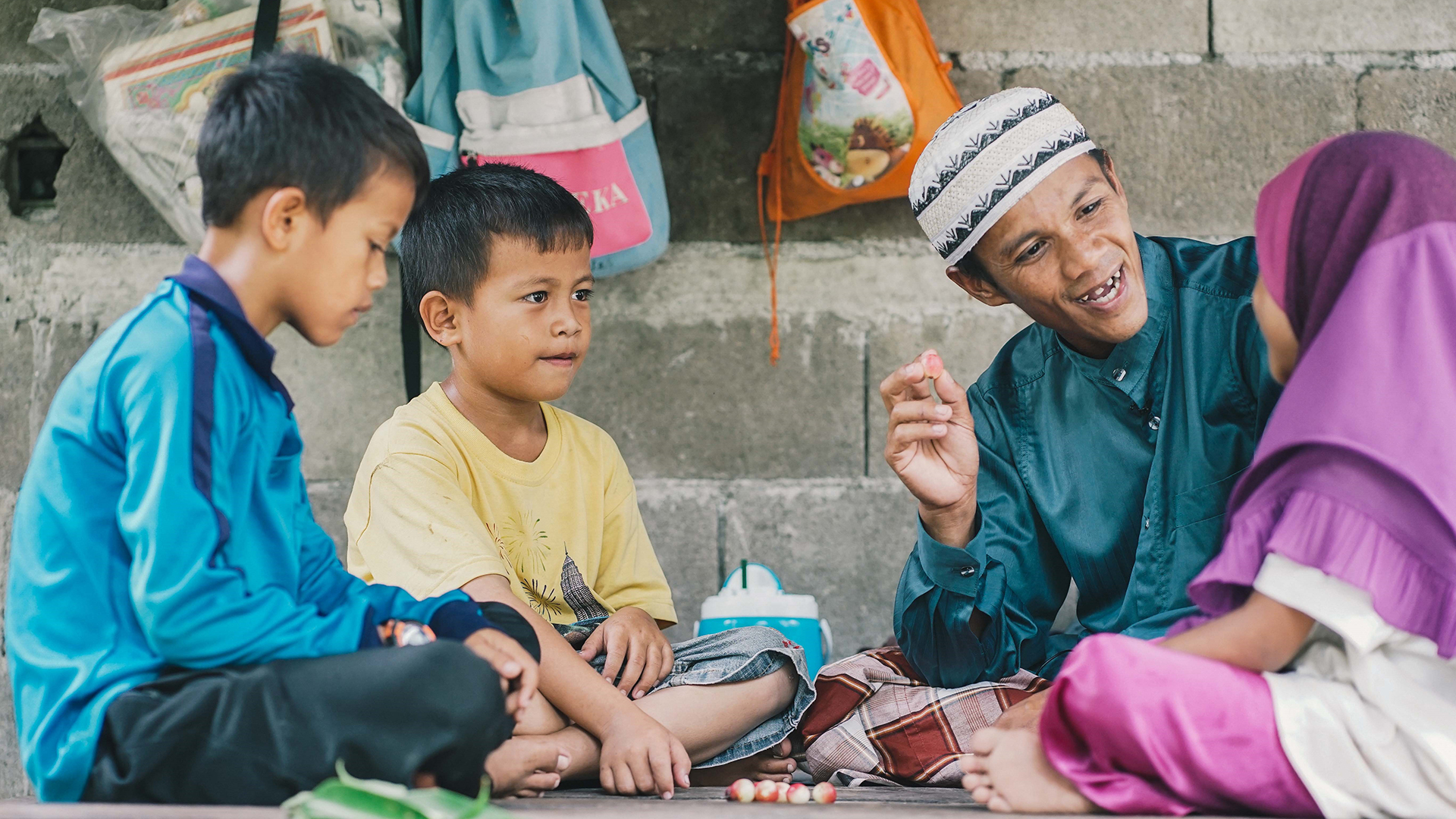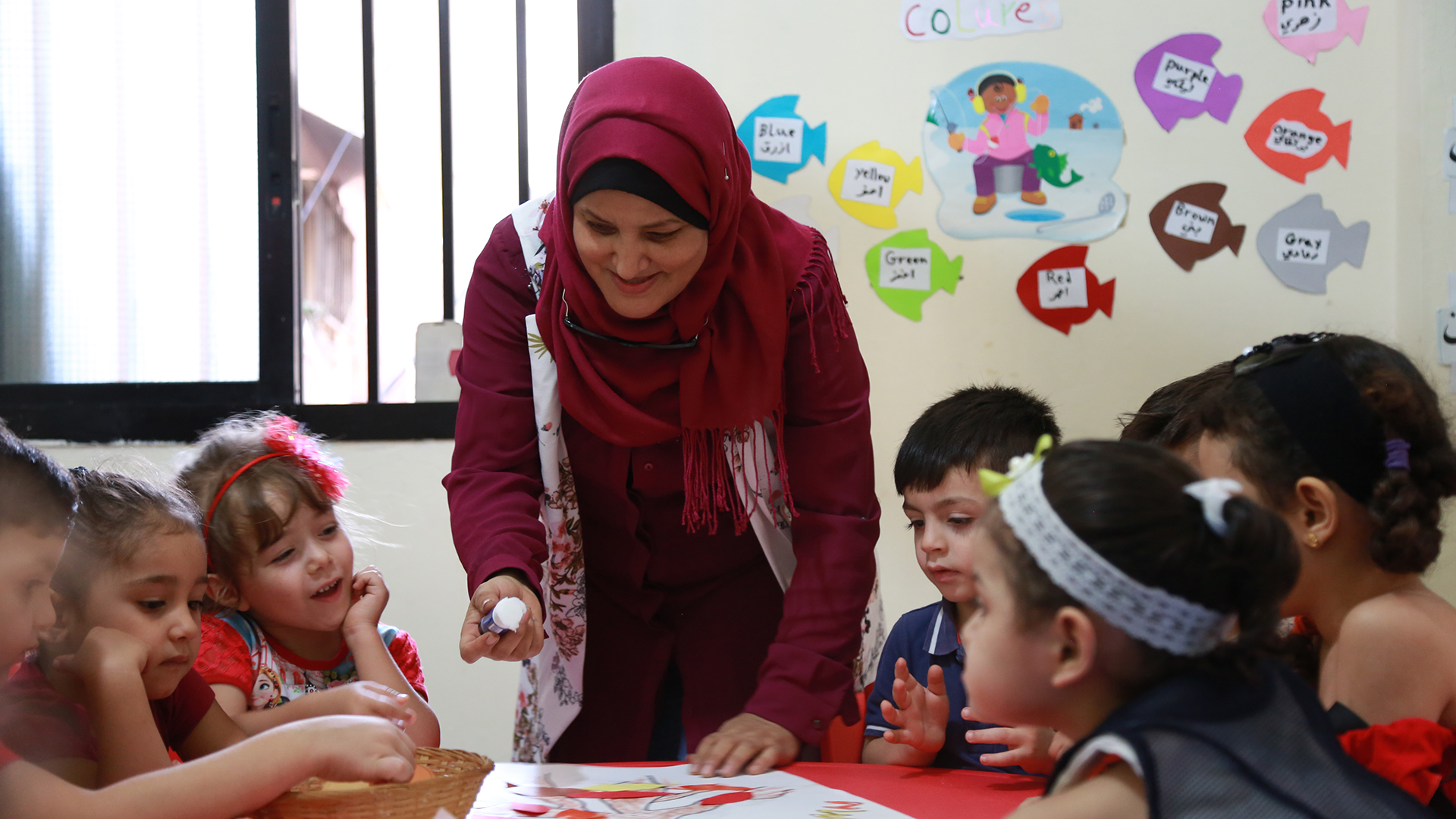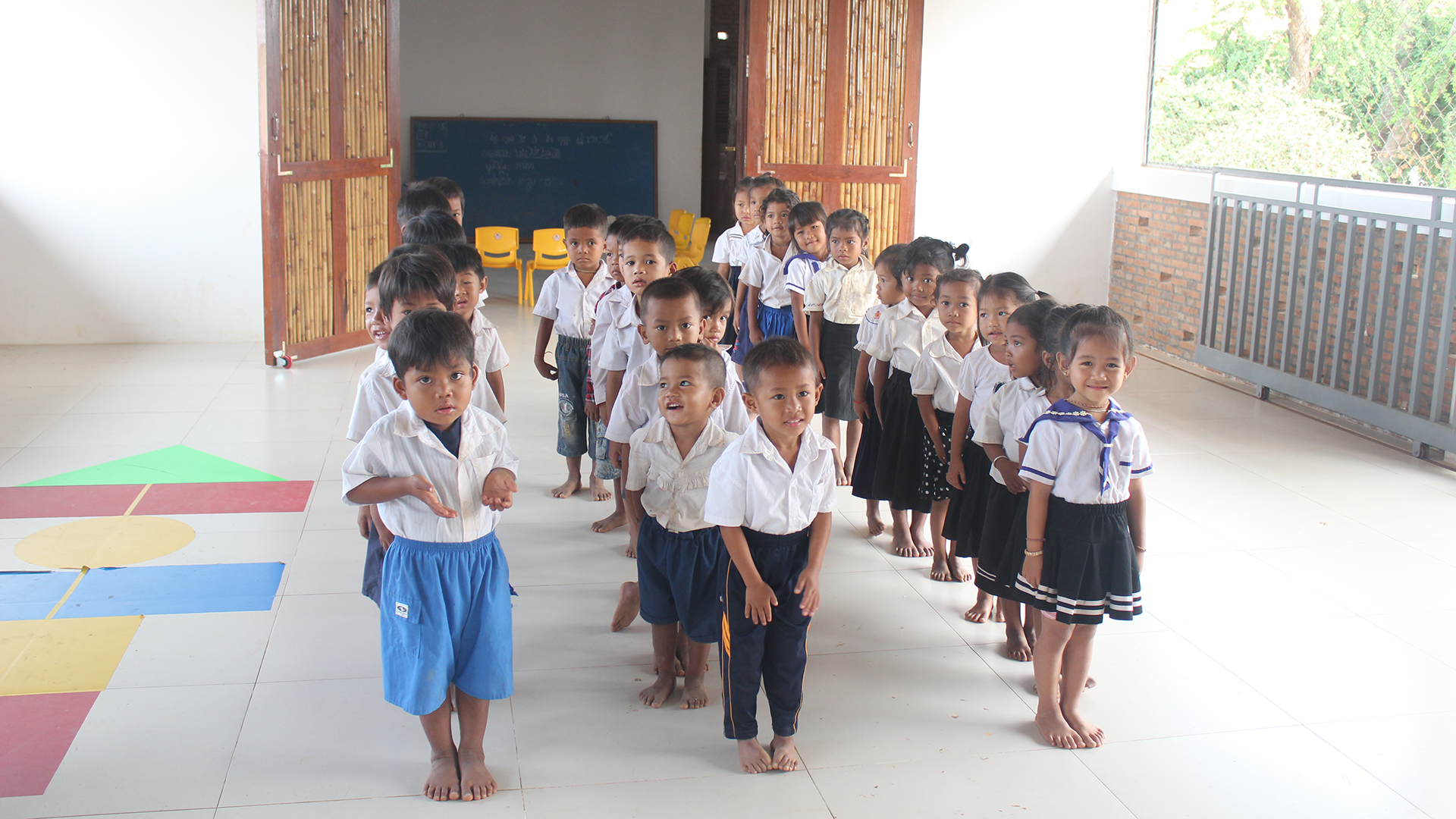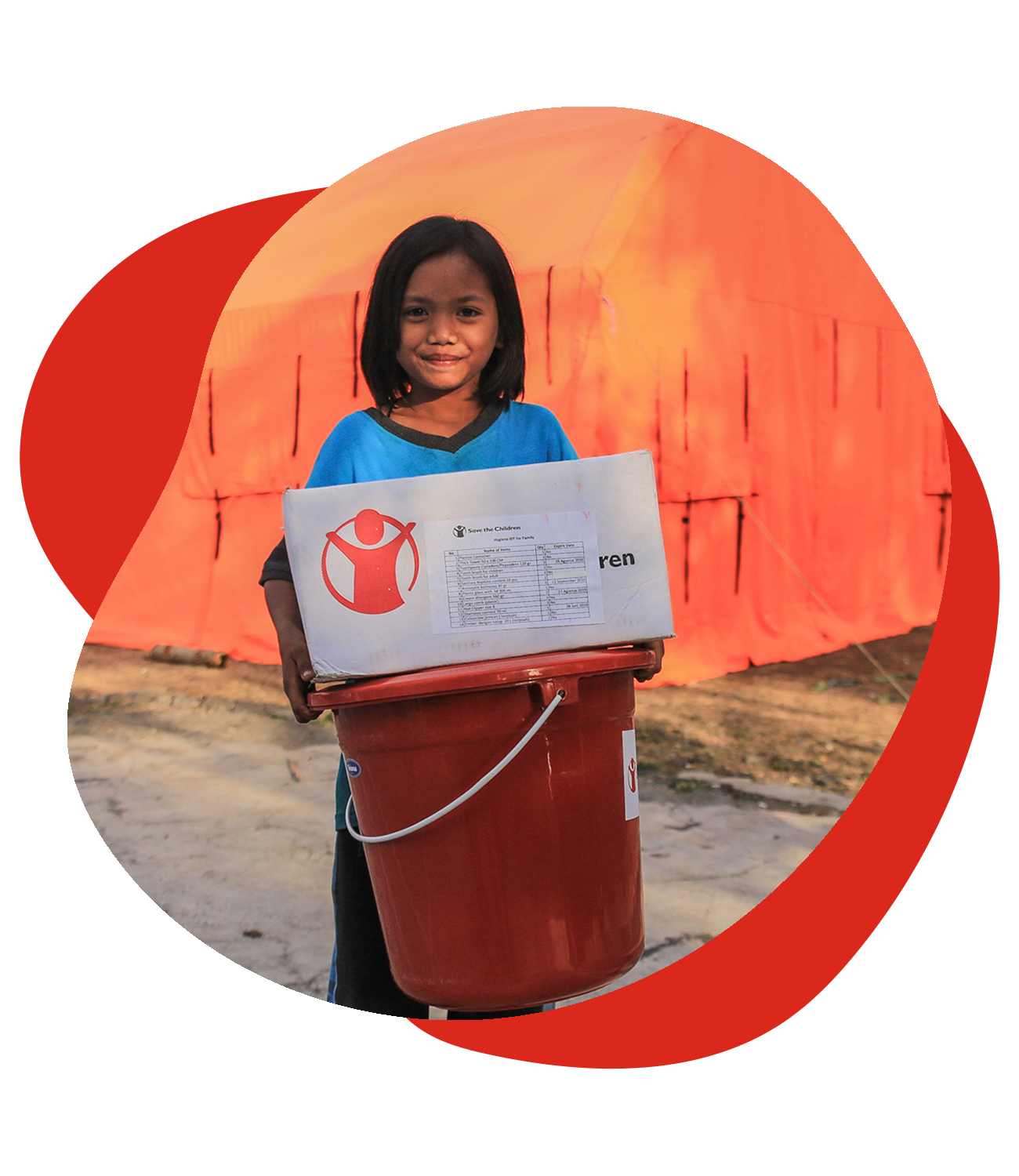Education is every child’s brightest hope for a better future. All children should have the right to learn from a quality basic education in a safe and happy environment. However, millions of children around the world remain out of school. At Save the Children, we strive to ensure that all children will learn from a quality basic education.
Worldwide
124M
CHILDREN/YOUNG PEOPLE HAVE EITHER NOT STARTED SCHOOL OR DROPPED OUT.
*Data from Save the Children UK
1 IN 6
SECONDARY SCHOOL-AGE CHILDREN ARE NOT IN SCHOOL.

~50%
CHILDREN NOT IN SCHOOL ARE IN COUNTRIES AFFECTED BY WAR OR DISASTERS.
Our impact in 2019
Save the Children Hong Kong supported education programmes in Cambodia, China, Indonesia, Laos, Lebanon, Pakistan, Sri Lanka, Thailand, and Vietnam, directly providing services to 267,761 children and adults, and reaching more than 1.6 million people through activities to raise public awareness of local education issues.
Thailand: Empowering Parents to Let Children Learn in a Fun Way
Thailand: Empowering Parents to Let Children Learn in a Fun Way

Rosalee is a 37-year-old father of five children and is going to have another child soon. For six days a week, he has to travel to another village to work as a house painter to support his family. He admitted that he used to be aggressive at home. He knew that was not right, but he could not stop it.
However, things have changed since Rosalee participated in the parent education workshops organised by Save the Children’s “Eat, Play, Love, Read” programme aiming to address the development needs of ethnic minority children in the Deep South of Thailand.
The parent education workshops that Rosalee attended teach parents how to help their children learn in a fun way, for example, through reading story books, learning letters or counting numbers. Participants are encouraged to bring their children with them to join the workshops to learn together. Children’s storybooks and learning materials in the Patani-Malay language are given to participants to support their learning.
“The workshop was enlightening,” said Rosalee. “I understand now that I want my children to love me and want to be with me, not scared of me. I also understand that I should spare more time for my children.” Now after returning from work, Rosalee spends more time with his children by playing games and activities that he learnt from the workshop. “I could see the difference in my children’s development from playing with them every day.” “I feel closer to my children because of all the activities that we could play together. I feel that I prefer our current relationship,” said Rosalee. “I actually still have a long stick at home, but I don’t use it anymore.”
Lebanon: Grandparents Helping Vulnerable Refugee Children Learn and Grow
Lebanon: Grandparents Helping Vulnerable Refugee Children Learn and Grow

Grandparents Helping Vulnerable Refugee Children Learn and Grow In 2019, Save the Children piloted the Grandparents Kindergarten Model in Bourj al-Barajneh and Beddawi Palestinian refugee camps in Lebanon, to help children aged 3-6 to learn and develop to their full potential through high-quality Early Childhood Care and Development (ECCD) activities. Grandparents and retirees were employed to be teachers to capitalise on their wealth of knowledge and experience, while also reducing salary costs to make the ECCD service more affordable for the most vulnerable families living in the refugee camps.
The programme served 80 children of all nationalities within these refugee camps, mainly Palestinian refugees from Lebanon and Syria and refugees of Syrian nationality. Under this programme, children have the opportunity to attend various classes and activities from language including Arabic and English, mathematics, science, civic education, and hygiene awareness. All these sessions aim to foster the development of cognitive, linguistic, social and communication skills in children. Children are also sensitised about their rights, and exposed to different skills that they require in order to be able to connect with their peers and community in the most positive and inclusive way.
According to teachers and caregivers in the programme, there was significant improvement in children’s learning, and their social and communication skills. The programme has received great feedback from parents as well.
Cambodia: Promoting Early Childhood Care and Development in Floating Villages
Cambodia: Promoting Early Childhood Care and Development in Floating Villages

Kampong Kda Community Preschool Centre was built in Kampong Chhnang Province of Cambodia in 2018. The single-classroom centre is located along the Tonle Sap River, and holds classes from Monday to Saturday. Before the centre was built, there were no preschool classes.
Chhean Thia Sovan Molika, a five-year-old girl and student at the preschool, said, “I am very happy when I study at the new building. Now I can count, read, and play with my friends, and I can sing songs. This centre has a toilet and I love this centre!”
In Cambodia, the children living in the 137 floating villages along the Tonle Sap river and lake in Kampong Chhnang and Pursat provinces rank among the least likely to have access to quality early childhood services. They also suffer from high malnutrition rates and lack access to quality health services, education, water and sanitation.
Save the Children has been working with various parties to support these communities in providing safe and hygienic opportunities for young children to learn. Our Early Childhood Care and Development centres create friendly learning environments for children from three to five years of age, and promote early childhood care and development within communities.

Become a Monthly Donor
Create a Sustainable Future for Children
Monthly giving is critical to providing a predictable income stream that allows Save the Children to plan and implement projects more efficiently.
When disaster strikes or a crisis breaks out, our dedicated emergency responders are among the first to arrive – and the last to leave.
With your support, we can be ready to send life-saving food, shelter and medicines straight to where they are most urgently needed.

